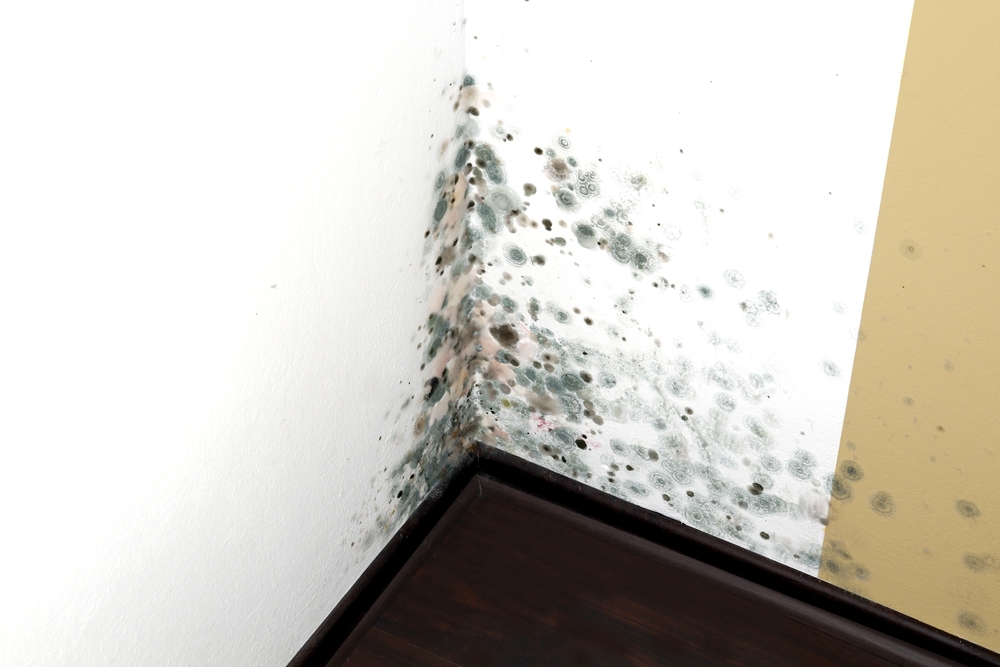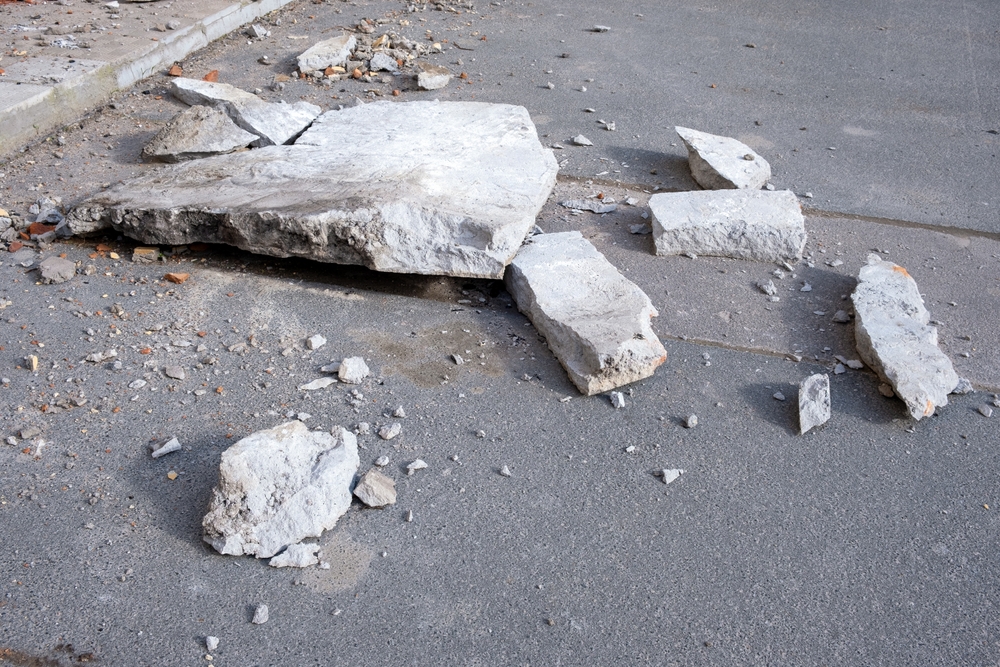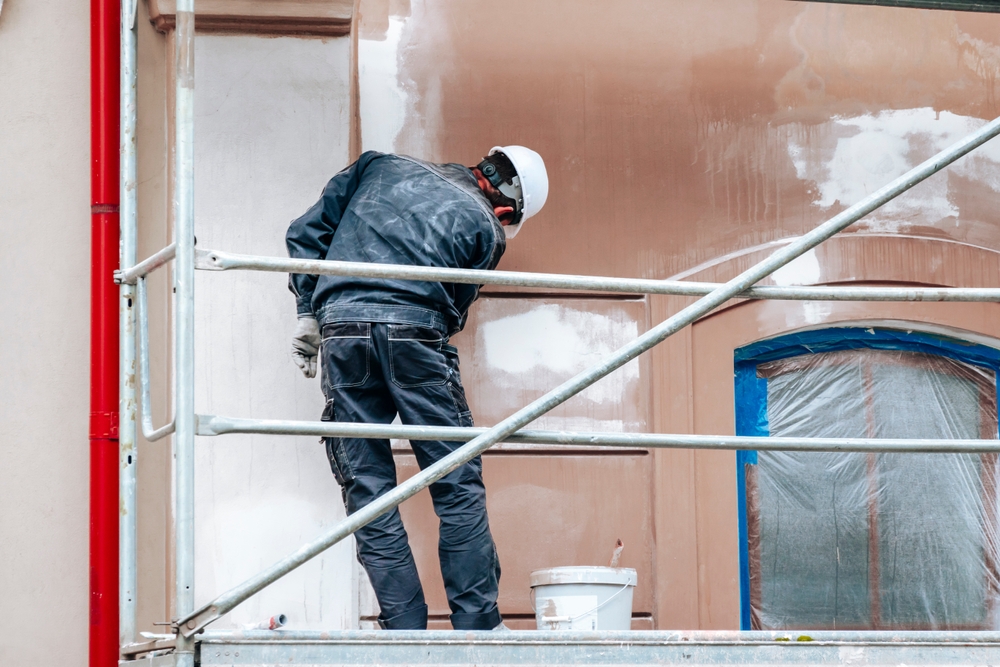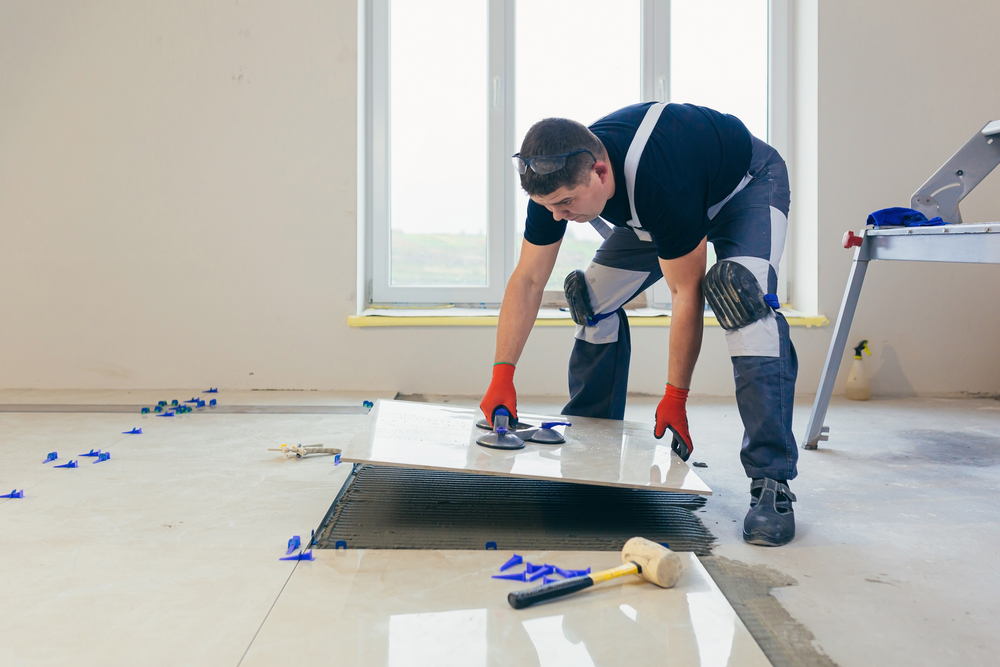February 19, 2024 - Benjamin Ehinger
How to Get Rid of a Musty Smell in the Basement: Effective Solutions for a Fresher Space
CALL NOW 844-762-8449
Learning how to get rid of a musty smell in the basement can feel like a daunting task, but with the right approach, it’s entirely possible to refresh and maintain a clean environment. Musty odors typically signal the presence of mold or mildew, which thrive in damp, dark conditions. If left unchecked, these smells can permeate your home, affect indoor air quality, and potentially lead to health issues. Attacking the root cause of the dampness is essential for long-term resolution, and you may find that addressing leaks, improving ventilation, or even sealing surfaces can make a significant difference.
When tackling the musty smells, a thorough cleaning is often in order. You might consider renting a roll off dumpster for any waste materials that result from cleaning out your basement or conducting any necessary renovations. Eliminating mold spores, cleaning with specialized solutions, and ensuring all areas are dry will help prevent the odor from returning. For those persistent smells, there are various methods and products designed for odor absorption and control. If the task seems too overwhelming, don’t hesitate to seek professional help, as they can offer tailored solutions and advice for your specific situation.
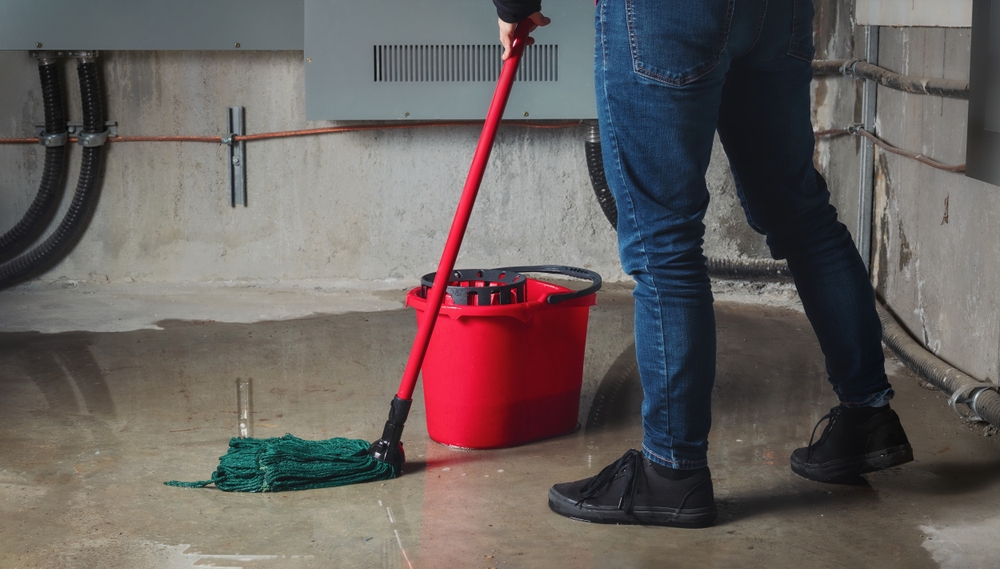 To effectively remove musty smells from your basement, you can use natural cleaning solutions or chemical cleaning agents, each offering distinct benefits and methods of application.
To effectively remove musty smells from your basement, you can use natural cleaning solutions or chemical cleaning agents, each offering distinct benefits and methods of application.
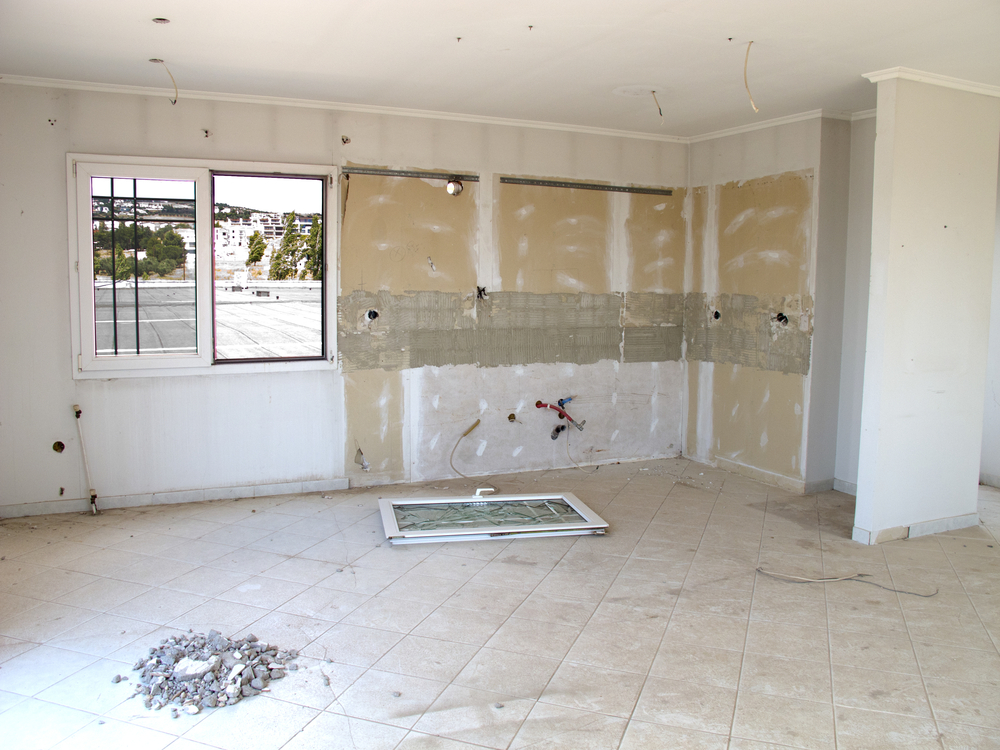 Implementing renovation measures is crucial for a permanent solution to eliminate musty smells in your basement. The key is to prevent moisture ingress and ensure proper water vapor management.
Implementing renovation measures is crucial for a permanent solution to eliminate musty smells in your basement. The key is to prevent moisture ingress and ensure proper water vapor management.
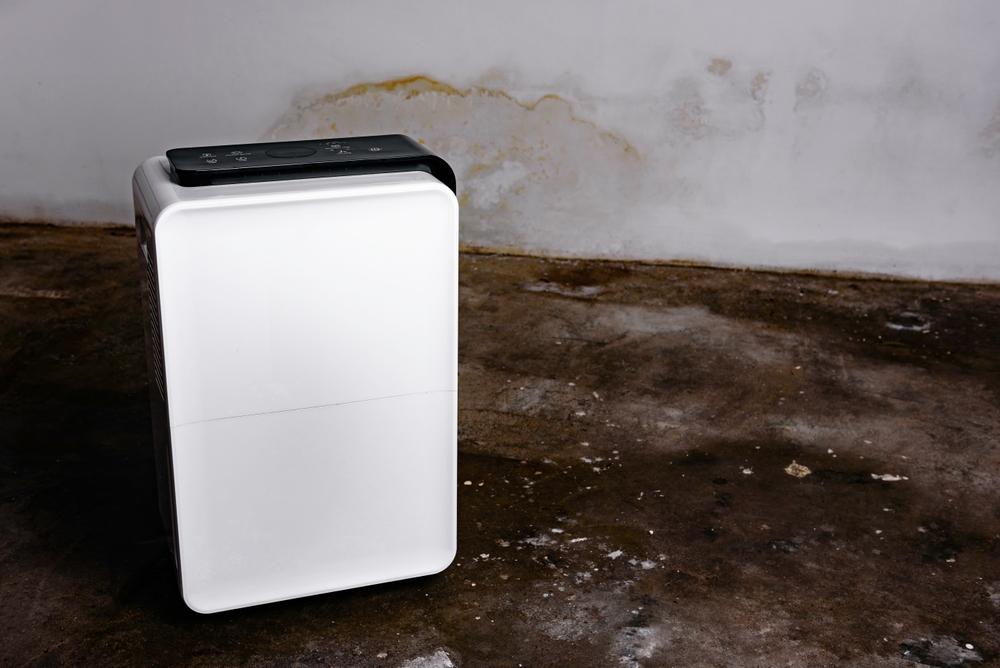 When tackling a musty smell in your basement, using the right products can make a significant difference. Below, find specific recommendations to effectively address your needs.
When tackling a musty smell in your basement, using the right products can make a significant difference. Below, find specific recommendations to effectively address your needs.
Key Takeaways
- Addressing the root cause and improving conditions can eliminate musty odors.
- A thorough cleaning and waste removal are key steps for musty smell remediation.
- Implementing targeted solutions ensures long-term freshness and odor control.
Identifying the Source of the Musty Smell
Before you can rid your basement of that unwelcome musty odor, it’s essential to pinpoint its origin. Accurate identification is the first step toward a fresh and odor-free space.Moisture Issues
Moisture is often the primary culprit behind a musty basement smell. It can seep into your space via leaks in your foundation, improper drainage around your home, or high humidity levels. To determine if moisture is at the heart of your problem, inspect for water stains, condensation on pipes, or dampness on walls and floors.Mold and Mildew Presence
Where there’s moisture, mold and mildew are never far behind. These fungi thrive in damp conditions and can grow on a variety of surfaces—from wooden beams to carpeting. Detecting their presence is crucial; look for visible growth or discoloration on surfaces, especially in corners, behind furniture, and other poorly ventilated areas.Ventilation Problems
Insufficient ventilation could be contributing to stagnant air, which compounds musty odors. Basements often lack proper airflow, leading to a buildup of damp, stale air. Check if your basement windows can open or if they’re sealed shut. Assess the performance of any existing exhaust fans and consider the possibility of installing a dehumidifier to manage humidity levels.Preventing Musty Odors
To ensure your basement remains fresh, focus on waterproofing, controlling humidity, and promoting good airflow.Effective Basement Waterproofing
Water infiltration is a common cause of musty odors in basements. To prevent moisture seepage:- Inspect: Regularly check for signs of water damage or leaks, especially after heavy rainfall.
- Repair: Seal any foundation cracks and apply waterproof coatings where necessary. Consult how to properly waterproof your basement for detailed instructions.
Dehumidification Strategies
Controlling humidity levels is essential in combating musty smells:- Use a Dehumidifier: Maintain indoor humidity between 30-50% with a dehumidifier.
- Monitor Humidity Levels: Hygrometers help you keep track of humidity and adjust as needed. Learn more about dehumidification and its benefits.
Improved Air Circulation
Good ventilation helps prevent musty odors by keeping air moving and avoiding stagnation:- Open Windows: When weather permits, allow fresh air to flow through the basement.
- Use Fans: Position fans strategically to ensure continuous air movement. For ways to enhance ventilation, review tips on eliminating basement mustiness.
Cleaning Techniques
 To effectively remove musty smells from your basement, you can use natural cleaning solutions or chemical cleaning agents, each offering distinct benefits and methods of application.
To effectively remove musty smells from your basement, you can use natural cleaning solutions or chemical cleaning agents, each offering distinct benefits and methods of application.
Natural Cleaning Solutions
- White Vinegar: Place bowls of white vinegar around your basement; its acidic nature helps neutralize and absorb odors.
- Baking Soda: Scatter open containers of baking soda to absorb unpleasant smells; replace every few months for continuous freshness.
Chemical Cleaning Agents
- Commercial Deodorizers: Select commercially available deodorizers designed for musty spaces; follow the manufacturer’s instructions for use.
- Bleach Solution: If you find mold, a diluted bleach solution (1 part bleach to 10 parts water) can be applied to non-porous surfaces, but ensure proper ventilation when using bleach.
Mold Removal
Removing mold effectively from your basement not only gets rid of musty odors but also ensures a healthier environment. Addressing the cause and implementing thorough cleaning methods are crucial for complete mold remediation.Safety Precautions
When tackling mold removal, your safety is paramount. Always wear protective gear including:- Gloves: to protect your hands from harsh cleaning agents.
- N95 mask: to prevent the inhalation of mold spores.
- Goggles: to shield your eyes from spores and cleaners.
Mold Remediation Methods
There are several strategies to eradicate mold, but it’s vital to choose the method that best suits the extent of mold growth and the surface affected.- Vinegar Solution: Directly apply undiluted white vinegar onto small areas of mold using a spray bottle. Let it sit for an hour before wiping away.
- Borax Solution: Mix 1 cup of borax with a gallon of water. Scrub the mold using this solution without rinsing, as borax discourages further mold growth.
Odor Absorption
Absorbing musty odors from your basement can be achieved effectively with certain materials that trap and neutralize smells.Activated Charcoal
Activated charcoal is highly porous and can trap odor particles. For optimal use, place the charcoal in open containers or in pouches around different areas of the basement. It’s particularly effective in enclosed spaces where air flow is limited.Baking Soda Applications
Baking soda, or sodium bicarbonate, is renowned for its ability to neutralize odors. You can employ this method by:- Sprinkling baking soda directly on floors.
- Placing bowls of baking soda around the basement.
Commercial Odor Absorbers
Commercial odor absorbers are formulated to combat musty smells. Products such as gel deodorizers or aerosol sprays can be used according to the manufacturers’ instructions. They often provide a fast-acting solution and are ideal for ongoing basement odor management.Long-Term Odor Control
To effectively manage musty odors in your basement, it’s important to establish a strategy for consistent maintenance and humidity control. This approach ensures the freshness of your space over time.Regular Maintenance Schedule
Create a maintenance checklist and mark your calendar for routine inspections. Monthly tasks should include:- Inspecting the basement for any signs of mold or mildew growth.
- Cleaning surfaces with antimicrobial products to discourage spore development.
- Checking for sources of water intrusion like leaks or condensation and rectify them promptly.
Monitoring Humidity Levels
Maintaining optimal humidity levels is critical for preventing musty smells. Aim to keep your basement humidity between 30% and 50%:- Invest in a good-quality hygrometer to track the humidity levels in your basement.
- Use a dehumidifier if the humidity consistently exceeds 50%. Remember to regularly clean the dehumidifier’s air filter.
- Ventilation is key; consider installing an exhaust fan or improving air circulation with portable fans.
Renovation Solutions
 Implementing renovation measures is crucial for a permanent solution to eliminate musty smells in your basement. The key is to prevent moisture ingress and ensure proper water vapor management.
Implementing renovation measures is crucial for a permanent solution to eliminate musty smells in your basement. The key is to prevent moisture ingress and ensure proper water vapor management.
Sealing Floors and Walls
The first line of defense in your basement against moisture is a proper seal. Inspect your basement floors and walls for any cracks or gaps. Cracks can serve as entry points for moisture, which contributes to the musty smell. Seal these cracks with hydraulic cement or a masonry sealer, depending on the severity of the crack. Products such as Drylok can also be used to coat the walls and floor, creating a waterproof barrier.Installing Vapor Barriers
Moisture can penetrate your basement not only through cracks but also by diffusing through walls and floors. Installing a vapor barrier is an effective renovation step to block this moisture transmission. Attach the vapor barrier directly to the internal walls and floors to prevent moisture from entering your basement space. This method is mentioned in The Family Handyman as a way to tackle musty smells by handling the underlying moisture issues. It is especially effective if your basement is below ground level where soil moisture is a concern.Professional Help
Sometimes, despite your best efforts, the musty smell in your basement persists. In such cases, seeking professional help can ensure that the underlying issues are addressed comprehensively and safely.When to Call Experts
You should consider calling in experts if you notice persistent mold growth, water damage that’s not easily repairable, or if the musty smell returns quickly after cleaning. Professional services are equipped with the necessary tools to accurately diagnose and resolve issues that might not be apparent or accessible to homeowners.Choosing a Remediation Service
When selecting a professional remediation service, start by looking for qualified and experienced professionals. Ensure they have a good reputation by reading reviews and asking for references. Here are a few points to consider:- Certifications: Check if the service providers have certifications from industry-recognized organizations.
- Insurance and Licensing: Make sure they are licensed to operate and carry adequate insurance.
- Methods and Equipment: Inquire about the methods they use for mold assessment and removal, and whether they have state-of-the-art equipment.
- Estimates: Obtain written estimates from several services before making a decision. This should detail the work to be done and the costs involved.
Product Recommendations
 When tackling a musty smell in your basement, using the right products can make a significant difference. Below, find specific recommendations to effectively address your needs.
When tackling a musty smell in your basement, using the right products can make a significant difference. Below, find specific recommendations to effectively address your needs.
Dehumidifiers
Dehumidifiers play a crucial role in maintaining low humidity levels, which is essential for preventing mold and mildew growth, the common culprits behind musty odors. The Frigidaire 70-Pint Dehumidifier is highly effective, capable of operating in basements up to 1,400 square feet. It also includes a washable filter, adding to its convenience.Air Purifiers
Air purifiers help by trapping and removing spores and other particles that contribute to musty smells. The Coway AP-1512HH Mighty Air Purifier is known for its four-stage filtration system, which includes a pre-filter, odor filter, HEPA filter, and an ionizer to thoroughly cleanse the air in rooms up to 361 square feet.Cleaning Supplies
For direct removal of mold and mildew, proper cleaning supplies are essential. White vinegar is a natural option that can be used undiluted for spraying affected areas—its high acidity helps to kill mold and neutralize odors. On the chemical front, products like CLR Mold & Mildew Stain Remover can be used for tougher jobs, ensuring effective cleanup with its strong formula designed for various surfaces.Health Considerations
When addressing a musty smell in your basement, it’s important to be aware of potential health risks associated with prolonged exposure to mold and mildew.Allergy and Asthma Triggers
Mold spores thriving in a damp basement can significantly increase the risk of allergic reactions and asthma attacks. If you experience symptoms such as sneezing, coughing, or difficulty breathing, these may be signs that your basement air quality needs attention. Regularly inspecting for mold growth and addressing moisture issues promptly can help mitigate these health risks.Long-Term Health Effects
Exposure to mold over an extended period may lead to more severe health issues. Chronic respiratory conditions and immune system disorders have been linked to high levels of mold exposure. It’s essential to maintain a dry and clean basement environment to help prevent the development of these long-term health effects.Frequently Asked Questions about How to Get Rid of a Musty Smell in the Basement
In this section, you’ll find specific solutions for common issues related to musty smells in the basement, ranging from natural remedies to the use of technology.What natural remedies can eliminate musty odors in a basement?
Natural solutions, like baking soda, can absorb unpleasant odors. Placing bowls of white vinegar or activated charcoal around your basement can also help neutralize smells.What are the fastest methods to remove musty smells in a basement?
Quickly removing musty odors involves increasing air circulation with fans or using a dehumidifier to reduce moisture. Sealing leaks or damp areas can also speed up the process.How can one remove musty smells from a flooded basement?
For a flooded basement, promptly remove standing water and dry out the area thoroughly. Utilize large fans and a dehumidifier, and consider hiring professional services for cleanup and mold prevention.Are dehumidifiers effective in combating basement mustiness?
Yes, dehumidifiers are highly effective in maintaining a dry environment, thus preventing the conditions that lead to musty odors and mold growth.What are the best odor absorbers for a musty basement?
Odor absorbers like activated charcoal, baking soda, and Zeolite rocks are known for their ability to trap and eliminate musty smells from basements effectively.Is it possible for a basement to smell musty without the presence of mold?
Musty smells can occur even without visible mold, often due to trapped moisture or previous water damage that wasn’t properly addressed. Identifying and rectifying the source of moisture is essential for eliminating the odor.RECENT BLOGS
Our Reviews
Glenda Lanier Prowell
1721758635
I have ordered an 11 yard dumpster to be delivered to my house.Lonier was extremely helpful and answered all my questions. The rate was very reasonable.
Cedric Smikle
1721660395
Amber was extremely professional and courteous. She answered all of my questions and even some that I didn’t know I needed to ask.
Cait Kaider
1721243051
I highly recommend Waste Removal USA for their responsiveness and how the staff work hard to provide exceptional customer service. They have done well by us and our clients. Thank you!
Easom Family
1721223306
Louiner Pierre-Louis Is awesome! Did a great job. Will definitely be using this same company for all my dumpster needs because of his awesome customer service! Thank you!!!
tabitha Vazquez
1720539988
Wonderful and fast customer service!
LATEST BLOGS

